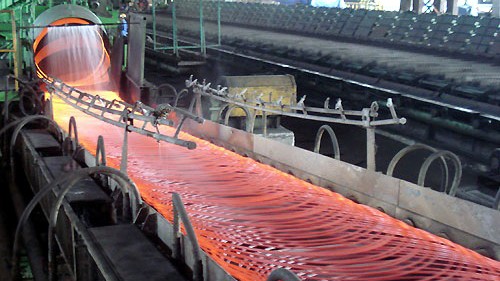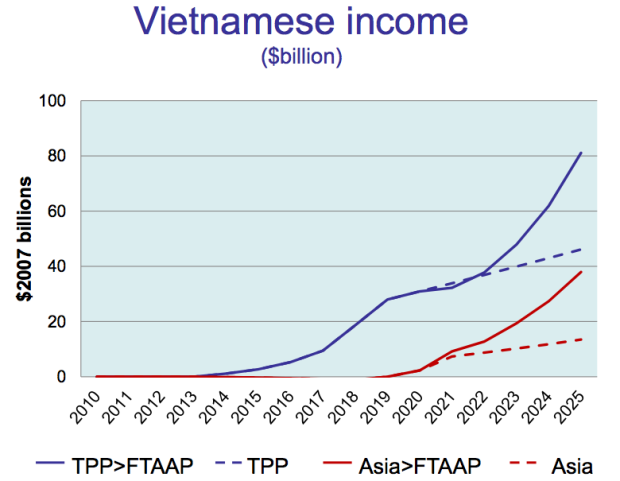(VOVworld) - TPP negotiations concluded in Hanoi last Wednesday. Joining the Trans-Pacific Partnership agreement will provide Vietnam both opportunities in investment and exports and new challenges.
Twelve TPP negotiators in the latest round of negotiations debated access to goods and service markets, investment, intellectual property, to environment, state-owned enterprises, and the law. They also conducted bilateral exchanges. For Vietnam, a developing country, becoming a TPP member will boost domestic production, trading, investment, and exports.
 |
Once the TPP agreement takes effect, up to 90% of taxes will be cut to 0% when Vietnamese products are exported to major markets like the US, Australia, Japan, and Canada. The export-import revenue of TPP members is forecast to reach 230 billion USD. Participation will increase Vietnam’s trade as much as 30%. In order to enjoy the substantial tariff reduction, Vietnam’s export products must meet origin requirements. Currently half of Vietnamese raw materials are imported from non-TPP nations. The domestic market will become more open to imports, meaning Vietnamese enterprises will face stiffer competition at home. Nguyen Duc Thuan, Vice Chairman of the Management Board of the Vietnam Enterprise Investment Company, say: “the TPP agreement covers many new areas on which we haven’t negotiated much, so policymakers should study them in order to create a favorable legal environment to protect Vietnamese enterprises. The government should provide support in the form of investment orientations for Vietnam’s garments and textiles auxiliary industry and garment companies should improve their competitiveness.”
 |
| “Vietnam would be the largest beneficiary on the TPP track and of an Asia- Pacific-wide agreement” (Photo: amchamvietnam.com) |
In addition to such issues as liberalization of goods, services, and investments, the agreement also deals with intellectual property rights, competition policies, state-owned enterprises, government procurement, labor, and the environment. Doctor Vo Tri Thanh, Deputy Director of the Central Institute for Economic Management, says the TPP will create pressure for institution reforms. Thanh explains further: “
how Vietnam will benefit from the TPP will depend on how far it has gotten with reforms. Innovation should be combined with restructuring of public investment, SOEs, and credit organizations, improving the investment and trading environment, and re-allocating resources to perfect the market mechanism.”
The TPP favors a level playing field without discrimination toward developed or developing countries. It is a great opportunity but also requires Vietnamese enterprises to improve their capacity to match more developed nations. Economist Tran Du Lich says: “the government is working to restructure SOEs, the banking system, investment, and public procurement to attract new investment flows and match new TPP conditions. As a result, it’s time for enterprises to insist on sustainable growth and attach more importance to restructuring their operations. Vietnamese companies should particularly focus on the quality of personnel and solidifying business associations as a bridge to penetrate new markets.”